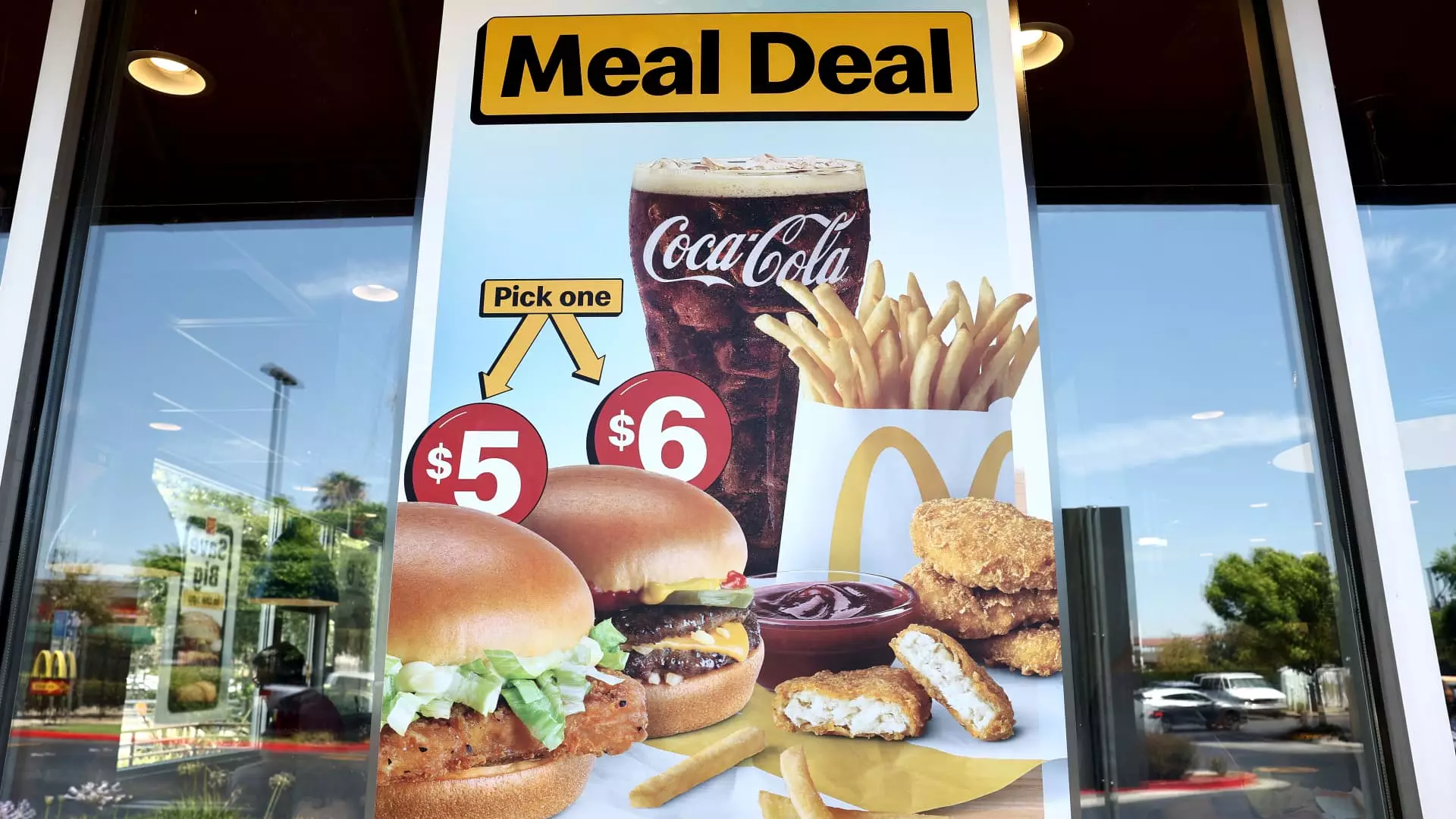In recent years, many fast-food chains have been struggling to retain customers and boost sales amid a challenging economic climate. As a result, various chains like McDonald’s, Taco Bell, Burger King, and Wendy’s have reintroduced or launched meal deals priced at $5 in an attempt to entice cost-conscious consumers. McDonald’s has reported an increase in foot traffic as a direct result of these promotions, although the overall sales impact has not been as significant as anticipated by Wall Street analysts.
Fast Food Facing Consumer Backlash
Despite historically performing better than other sectors during economic downturns, the fast-food industry has seen a shift in consumer behavior due to continuous price hikes in recent years. Many consumers, including those in the low-income bracket, have found fast food to be increasingly unaffordable. A LendingTree survey revealed that more than 60% of respondents have reduced their spending on fast food due to rising prices, signaling a broader trend in the industry.
Competition from Casual-Dining Chains
Furthermore, casual-dining chains like Chili’s have capitalized on the fast-food backlash by emphasizing their value proposition compared to traditional fast-food offerings. This shift in consumer preferences has resulted in some market share being captured by casual-dining chains from their fast-food counterparts. Darden Restaurants CEO Rick Cardenas noted that there is a “war for the less affluent customer” currently underway in the industry.
The resurgence of $5 meal deals by fast-food chains has been met with skepticism by investors, who fear that such promotions may not yield the desired increase in foot traffic. Consequently, shares of major chains like McDonald’s, Burger King, and Wendy’s have experienced significant declines this year. Investors are wary of the potential impact on profitability, given the need to balance attracting customers with maintaining long-term financial sustainability.
Additionally, franchisees have expressed reservations about the effectiveness of discount strategies, as they can erode profit margins and hinder business operations. Larger franchisees, backed by private equity funds, have been more resistant to parent companies’ discount initiatives in recent years. McDonald’s franchisees, for example, formed the National Owners Association to challenge the company’s discount strategies and store renovation plans, highlighting an ongoing tension between franchisees and corporate management.
While value meals priced at $5 can drive short-term traffic and sales, there is a risk of these promotions becoming unsustainable in the long run. Without successfully upselling customers on additional items or higher-priced menu options, the profitability of such deals may be compromised. Investors and industry analysts are closely monitoring the performance of these promotions to assess their long-term viability and impact on overall sales.
The resurgence of $5 meal deals in the fast-food industry reflects a broader strategy to attract price-sensitive consumers and drive foot traffic amid challenging market conditions. However, the effectiveness of these promotions in driving sustainable sales growth remains a point of contention among investors, franchisees, and industry experts. As fast-food chains navigate the evolving dining landscape, striking a balance between value offerings and profitability will be crucial to their long-term success.

